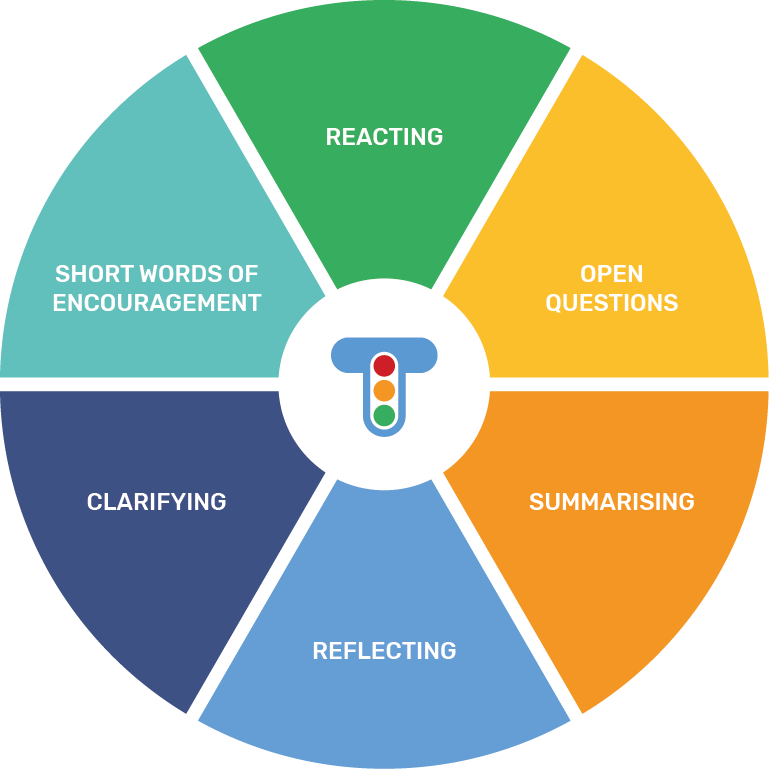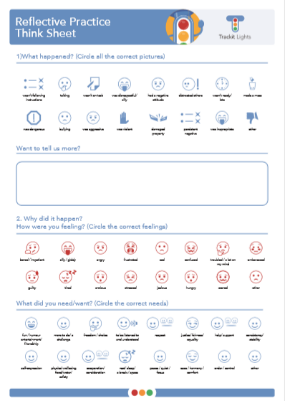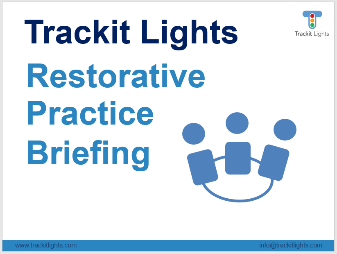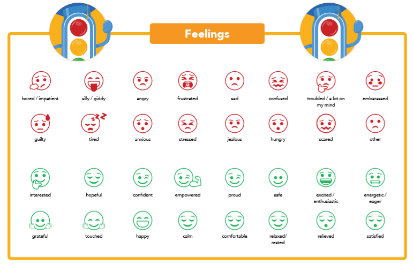Free Restorative Practice Pack
Instantly download our FREE ‘Think Sheet’, ‘Needs and Feelings Card’, ‘Listening Wheel’, ’50 Circle Time Games and Questions’ and ‘Circle Time Lesson Plans’. Start implementing Restorative methodologies in your classroom today.

What you get in your Restorative Practice Pack
1) Think Sheet
If you are thinking, “This is great but how am I supposed to have the time to do it”, the ‘Think Sheet’ is a way you can get some Restorative Practice into your lessons, even when you don’t have time to sit with your pupils and talk them through the process yourself. If a pupil does need some time to reflect, this ‘Think Sheet’ is a great activity to give them. For younger pupils, a member of staff or an older pupil in the school might have to help. We also recommend reading our ‘6 questions that improve behaviour without punishments’ article.


2) 2x Restorative Practice Staff Meeting Briefing PowerPoints
These two PowerPoints can be used in a staff meetings to introduce the rest of the team to Restorative Principles. If you’ve not already seen our ‘5 Steps to implementing Restorative Practice Across the School’ article, it’s full of great tips to get the rest of the school on board.
3) 50 Circle Time Questions and Games
Circle time at the beginning and the end of the week is a cornerstone of Restorative Practice and is key to creating a school culture that nurtures a restorative ethos. Please view our ‘Making circle time effective’ article and use our ‘50 Circle Time Questions and Games for inspiration.
4) Circle Time Lessons Plans for KS1-KS4
These age appropriate lesson plans will help you visualise how to run a successful circle time that your pupils will look forward to each week. These lesson plans are meant for inspiration only, and we encourage you to start slowly and work your way up to these ideas, designing your circle time to meet the needs of your pupils. Remember that sharing anything in front of peers is effectively public speaking and at first it is very intimidating for your pupils. Start with asking very simple questions before getting onto sharing personal information.
5) Needs and Feelings Card
Rather than identifying who is to blame, Restorative Practice focusses on what needs and feelings were driving the behaviour and what affect did the behaviour have on other people’s needs and feelings.
Print out the ‘Needs and Feelings’ card (double sided) and cut down the middle so you get two cards per page – needs on the front and feelings on the back. In one to one or group reflection, give the cards to your pupils as a tool to help them answer restorative questions.


6) The ‘Listening Wheel’
The ‘Listening Wheel’ is a valuable tool in counselling and therapy, but it is equally relevant in Restorative Practice. The model explains different ways to let your pupils know you are listening to them and they have been heard and understood.
